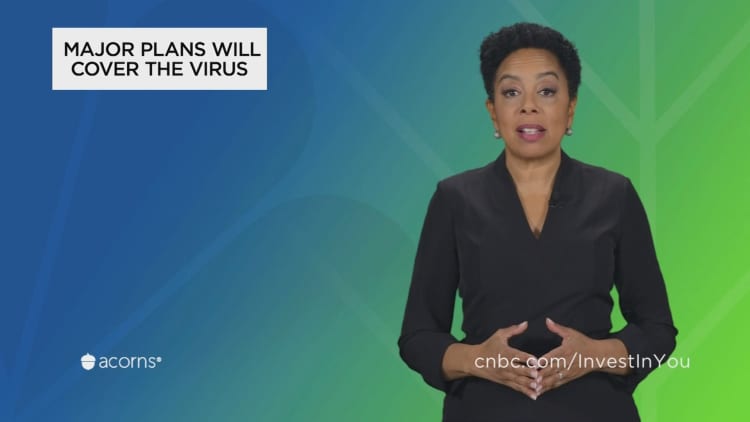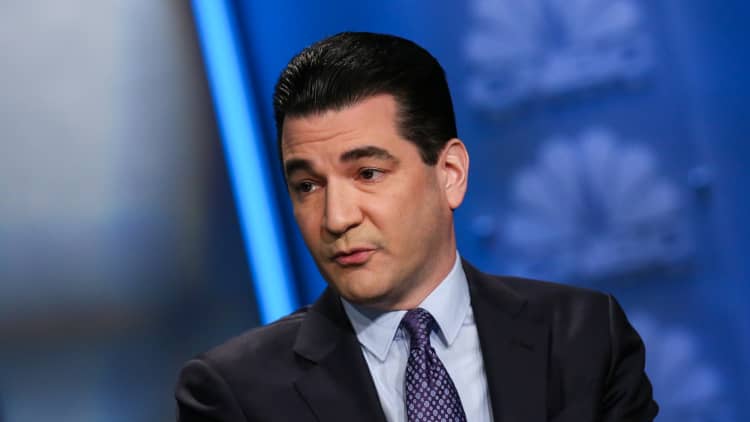Urgent care provider CityMD has acknowledged that it mistakenly told 15,000 people in New York and New Jersey who tested positive for coronavirus antibodies that they're immune to the virus.
Public health officials have said they don't yet know whether antibodies give people immunity to a reinfection of Covid-19. People who logged in to their patient portal to retrieve their results online saw the inaccurate statement, which was attributed to "an editing error" that has since been corrected, spokesman Matt Gove told CNBC.
CityMD corrected the language after CNBC sought comment, and it is reaching out to affected patients, Gove said.
Serological, or antibody, tests can indicate whether a person has had Covid-19, even if they were asymptomatic.
"Due to an editing error in the patient portal, some CityMD patients have received incorrect information saying a positive result on the COVID-19 antibody test confers immunity," Gove said in a statement Friday. "We have removed the incorrect language and will contact all patients to ensure they have the correct information."
As researchers learn more about the virus, inaccurate information and debate has spread rapidly on social media. CityMD, which runs more than 100 urgent care centers in New York and New Jersey, says it provides patients with accurate information during in-person consultations and elsewhere.
"CityMD patients getting the COVID-19 antibody test are given several documents ... explaining that a positive result does not mean they are immune to COVID-19," Gove said. "We apologize for any confusion this has created."
The Food and Drug Administration, as well as the World Health Organization and infectious disease specialists across the world, have said there is not enough data to indicate that coronavirus antibodies ensure immunity against the virus.
"Four months into this pandemic, we're not able to say an antibody response means someone is immune," Dr. Maria Van Kerkhove, head of WHO's emerging diseases and zoonosis unit, said last month, adding that this topic is a "very active area of research" and that there are a number of ongoing studies.
U.S. officials and corporations across America are pouring money into antibody testing, hoping it will give people the confidence to return to work and reopen parts of the economy. President Donald Trump has recommended states use the tests as they start relaxing some of the strict social distancing measures imposed to combat the pandemic, which has infected more than 1.3 million people across the United States, according to data compiled by Johns Hopkins University.

The antibody tests should not be used for individual diagnosis, according to Dr. Scott Gottlieb, the former commissioner of the Food and Drug Administration and a CNBC contributor and a member of the boards of Pfizer and biotech company Illumina. He said last month that the tests are best used for studies that seek to determine how broadly the virus has spread throughout the population.
"They shouldn't be using these tests to make individual decisions for individual patients," Gottlieb said last month on "Squawk Box." "They're good for population-level studies and they're good maybe in certain professions where there's a very high exposure to coronavirus, but for the general population an antibody test probably isn't that helpful."
The FDA tightened its rules for coronavirus antibody tests last month, ordering manufacturers to submit emergency use authorization forms and data proving the tests work within 10 days or face possible removal.
Since the FDA issued its initial antibody test policy in mid-March, the agency said it has become aware of "a concerning number" of commercial serology tests being promoted inappropriately, including for diagnostic use, or that aren't that accurate.
— CNBC's Berkeley Lovelace contributed to this report.



